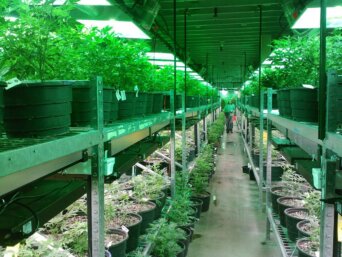- About
- Topics
- Story
- In-Depth
- Picks
- Opinion
- News
- Donate
- Signup for our newsletterOur Editors' Best Picks.Send
Read, Debate: Engage.
| topic: | Health and Sanitation |
|---|---|
| located: | Brazil |
| editor: | Ellen Nemitz |
Brazilians will soon be able to buy in drugstores products derived from cannabinoids prescribed by physicians. But, how much will these cost? Will they be affordable for everyone? According to specialists, the answer is no if national cultivation of cannabis is not equally allowed.
Let’s go back to the beginning: the discussions about cannabinoids medicine in Brazil has been long, full of prejudice and conservatism – like unsustained fear of encouraging recreational use, while marijuana is already the most used illicit drug in Brazil, according to the Oswaldo Cruz Foundation (Fiocruz).
However, at the beginning of December, the National Health Surveillance Agency (Anvisa, in Portuguese) decided to allow the sale of "products derived from cannabinoids,” not called medicine yet, a step that will demand three more years of research, and not without strict limits and rules to protect consumers.
International science is far more advanced: the phytocannabinoids (cannabidiol, tetrahydrocannabinol and tetrahydrocannabivarin) are under evaluation to ensure its medicinal properties. According to the International Association for Cannabinoid Medicine, there is evidence that cannabinoids can be useful in cases such as anorexia, epilepsy, chronic pain, glaucoma, psychiatric symptoms and diseases, Alzheimer's disease and others. Further studies are being made and can show in the near future other possible uses, such as in autism cases.
So, the decision was considered an important step toward the wide access for ill people who are in need of this medicine. However, by not allowing cultivation in Brazilian soil, this can end up restricting the access to the richest people. Ilona Szabó, political scientist working on drug policies, condemned Anvisa on Twitter by keeping the plant cultivation prohibited. “The obscurantist group, the pharmaceutic industry and representatives among conservative physicians have won. Patients and its associations have lost,” she said.
These medicines could benefit up to 13 million people, according to Anvisa’s estimation. If controlled by huge pharmaceutic companies, though, the price can create an insurmountable barrier between people and medicine – as happens with other truly expensive medicine in Brazil. Furthermore, to Willian Dib, director of Anvisa and the only one to vote in favour of local cultivation, this prohibition will multiply juridical requirements and inflate the justice system.
He celebrated this first step in an interview with the BBC, but affirmed that the arguments against local cultivation are not strong enough. “We can reach a moment of total social absence of control, not only about quantitative, qualitative and security reasons. However, the government is worried about not allowing (cultivation). If Justice authorises, it seems everything is ok,” he assesses.
The individual judicial authorisation for cultivation that are being granted in Brazil carry risks in themselves, as the self-cultivation and production of medicine can be dangerous. Raquel Peyraube, president of the Uruguayan Society of Endocannabinology, once explained to TV Republica’s journalists, from Argentina, that there are potential interactions between medicine that only a doctor can predict, besides quality control, almost impossible at-home production: “The plant is not for everyone, nor for every illness, not even for all patients with the same illness.”
Furthermore, Peyraube, who was an active adviser for Uruguayan regulation law, highlighted the importance of adding the endocannabinoid system studies in graduation curriculum, as doctors remain without knowledge about it 30 years after its discovering. So, she summaries: “If we do it correctly, we can have a lot of benefits for suffering people.”
Image by Releaf Cannabis.
Editor's note (16 May, 2023): an earlier version of this article misidentified the image copyright holder.
